 by Ali Farkhan Tsani, Journalist of Mi’raj Islamic News Agency (MINA), Dai in Al-Fatah Boarding School Cileungsi, West Java, Bogor, Indonesia.
by Ali Farkhan Tsani, Journalist of Mi’raj Islamic News Agency (MINA), Dai in Al-Fatah Boarding School Cileungsi, West Java, Bogor, Indonesia.
Ramadan is the month fasting for Muslims. Fasting is done as an act of worship and obedience to Allah. Between dawn and sunset, Muslims abstain from all food, drink and any kind of sexual contact.
In addition to this physical components, the spiritual aspects of fasting include added emphasis on refraining from gossip, lies, obscenity and in general, any sinful act.
Allah says in the Holy Qur’an:
Also Read: Imaam Yakhsyallah: Nurture Love for the Prophet, One Will Be with Whom One Loves
يَـٰٓأَيُّهَا ٱلَّذِينَ ءَامَنُواْ كُتِبَ عَلَيۡڪُمُ ٱلصِّيَامُ كَمَا كُتِبَ عَلَى ٱلَّذِينَ مِن قَبۡلِڪُمۡ لَعَلَّكُمۡ تَتَّقُونَ
“O ye who believe! Fasting is prescribed to you as it was prescribed to those before you, that ye may (learn) self-restraint.” (Al-Qur’an Al-Baqarah [2] :183).
Fasting is thus universally known as a means of gaining self-discipline and of gaining closeness to Allah. It is the third of the Five Pillars of Islam. The others are declaration of faith (Shahadah), prayer (Salah), charity (Zakah), and the pilgrimage to Makkah (Hajj).
Fasting, together with the other pillars, forms the foundation of faith. It instills in the individual a feeling of closeness to Allah and a desire to do good deeds at all times.
Rasulullah Shallallahu ‘Alaihi Wasallam said :
Also Read: Thanksgiving: An Islamic Perspective
مَنْ لَمْ يَدَعْ قَوْلَ الزُّورِ وَالْعَمَلَ بِهِ فَلَيْسَ لِلَّهِ حَاجَةٌ فِي أَنْ يَدَعَ طَعَامَهُ وَشَرَابَهُ
“He who does not desist from obscene language and acting obscenely (during the period of fasting),Allah has no need that he does not eat or drink.”. (Bukhari and Muslim)
The Prophet Shallallahu ‘Alaihi Wasallam also said:
الصِّيَامُ مِنَ اللَّغْوِ وَالرَّفَثِ، فَإِنْ سَابَكَ أَحَدٌ أَوْ جَهِلَ عَلَيْكَ فَقُلْ إِنِّيْ صَائِمٌ إِنِّيْ صَائِمٌ
“Fasting is not only from food and drink, fasting is to refrain from obscene (acts). If someone verbally abuses you or acts ignorantly toward you, say (to them) ‘I am fasting; I am fasting.’” (Ibnu Huzaimah dan Al-Hakim).
It is common to have one meal (known as Suhoor), just before sunrise and another (known as Iftar), right after sunset. It is recommended that muslims breakif their fast (Iftar) with dates, following the tradition of the Prophet Muhammad Shallallahu ‘Alaihi Wasallam.
Also Read: Achieving the Position of Fasting Expert with Kindness of Morality
Ramadan strengthens the community: Muslims invite one another for Iftar meals, and thereby create care and friendship among neighbors, families and friends. Many people also take Iftar to the mosques and share it with the wider community, especially the poor and needy.
All Muslims, from the age of puberty who are physically and mentally well should observe fasting during the month of Ramadan. Islam is a practical way of life and does not place hardship on those for whom fasting would be too difficult.
The sick and those traveling may defer their fast until their illness or journey is over. Pregnant women and nursing mothers may also postpone the fast. The very old, who are too weak to fast, and those who have a permanent illness that prevents them from fasting, are excused from fasting. They may feed a needy person for every day missed, if they can afford to do so. The mentally ill are also exempt from fasting.
Allah says :
Also Read: The Power of Charity in Ramadan
…وَمَن ڪَانَ مَرِيضًا أَوۡ عَلَىٰ سَفَرٍ۬ فَعِدَّةٌ۬ مِّنۡ أَيَّامٍ أُخَرَۗ يُرِيدُ ٱللَّهُ بِڪُمُ ٱلۡيُسۡرَ وَلَا يُرِيدُ بِڪُمُ ٱلۡعُسۡرَ وَلِتُڪۡمِلُواْ ٱلۡعِدَّةَ وَلِتُڪَبِّرُواْ ٱللَّهَ عَلَىٰ مَا هَدَٮٰكُمۡ وَلَعَلَّڪُمۡ تَشۡكُرُونَ
“… if anyone is ill, or on a journey, the prescribed period (should be made up) by days later. Allah intends every facility for you He does not want to put you to difficulties. (He wants you) to complete the prescribed period, and to glorify Him in that He has guided you; and perchance ye shall be grateful.” .” (Al-Qur’an Al-Baqara [2] :185).
Benefits of Fasting
Fasting is an act of deep personal worship to Allah in which Muslims seek to raise their level of Allah-consciousness. The act of fasting redirects the heart away from worldly activities and towards the remembrance of Allah.
Muslims focus during this month on strengthening their relationship with the Creator. It is a time for spiritual reflection, prayer and doing of good deeds. Fasting is intended to inculcate self-discipline, self restraint and generosity.
Also Read: Ramadan Brings the Change
The Prophet Muhammad Shallallahu ‘Alaihi Wasallam said,
الصَّلَوَاتُ الْخَمْسُ وَالْجُمُعَةُ إِلَى الْجُمُعَةِ وَرَمَضَانُ إِلَى رَمَضَانَ مُكَفِّرَاتٌ مَا بَيْنَهُنَّ مَا اجْتُنِبَتْ الْكَبَائِرُ
“The five prayers, Friday to Friday, and Ramadan to Ramadan will be expiation for the sins between them, so long as major sins are avoided”. (Ahmad).
مَنْ صَامَ رَمَضَانَ إِيمَانًا وَاحْتِسَابًا غُفِرَ لَهُ مَا تَقَدَّمَ مِنْ ذَنْبِهِ وَمَنْ قَامَ لَيْلَةَ الْقَدْرِ إِيمَانًا وَاحْتِسَابًا غُفِرَ لَهُ مَا تَقَدَّمَ مِنْ ذَنْبِهِ
“Whoever fasts the month of Ramadan out of faith and seeking reward, then Allah will forgive all of his previous sins.” (Muslim)
Fasting makes the individual more aware of the many bounties of Allah. The hunger and thirst remind the fasting person of the poor who may rarely eat well. Fasting re-enforces the concept that wasting the Creator’s bounties is a sign of ingratitude to Him.
Also Read: Ramadan, the Month of Education
Muslims are reminded to be extra-generous during the month of Ramadan and to share the bounties that Allah has provided them, giving generously in charity. Our wealth is regarded as a trust from Allah, not really our own; will we be greedy with it and spend it only on ourselves, or will we strive to please Him by sharing it with others?
A person who carefully observes the month of Ramadan becomes closer to Allah. The self-restraint of Ramadan make the heart and mind accustomed to the remembrance and praise of Allah and to the obedience of His commandments. It is therefore a spiritual regime and a re-orientation process for the body and mind – the extent of the benefit depends on the performance and sincerity of the individual Muslim.
Ramadhan is the Month of The Qur’an
Allah began revealing the Qur’an to the Prophet Muhammad Shallallahu ‘Alaihi Wasallam during Ramadan. The Holy Qur’an is known undoubtedly as “the most-read book in the world” for it is a book that is so often read, re-read and memorized, and all in its original language, Arabic.
Also Read: Come on Do I’tikaf
Allah says in the Holy Qur’an:
شَہۡرُ رَمَضَانَ ٱلَّذِىٓ أُنزِلَ فِيهِ ٱلۡقُرۡءَانُ هُدً۬ى لِّلنَّاسِ وَبَيِّنَـٰتٍ۬ مِّنَ ٱلۡهُدَىٰ وَٱلۡفُرۡقَانِۚ فَمَن شَہِدَ مِنكُمُ ٱلشَّہۡرَ فَلۡيَصُمۡهُۖ وَمَن ڪَانَ مَرِيضًا أَوۡ عَلَىٰ سَفَرٍ۬ فَعِدَّةٌ۬ مِّنۡ أَيَّامٍ أُخَرَۗ يُرِيدُ ٱللَّهُ بِڪُمُ ٱلۡيُسۡرَ وَلَا يُرِيدُ بِڪُمُ ٱلۡعُسۡرَ وَلِتُڪۡمِلُواْ ٱلۡعِدَّةَ وَلِتُڪَبِّرُواْ ٱللَّهَ عَلَىٰ مَا هَدَٮٰكُمۡ وَلَعَلَّڪُمۡ تَشۡكُرُونَ
“Ramadan is the (month) in which was sent down the Qur’an as a guide to mankind also clear (Signs) for guidance and judgment (between right and wrong). So everyone of you who is present (at his home) during that month should spent it in fasting, but if anyone is ill, or on a journey, the prescribed period (should be made up) by days later. Allah intends every facility for you He does not want to put you to difficulties. (He wants you) to complete the prescribed period, and to glorify Him in that He has guided you; and perchance ye shall be grateful.” (Al-Qur’an Al-Baqara [2] :185).
In Ramadan, Muslims are encouraged to focus as much time as possible on reading, listening to and understanding the teachings of the Glorious Qur’an. One of the ways Muslims get closer to the Qur’an during Ramadan is through a long congregational prayer known as Taraweeh that is offered in the late evening after the breaking of the fast.
During this prayer it is customary that the entire Qur’an is recited over the course of the entire month, by a person called a Hafiz in Arabic, meaning protector, or a person who completely memorises the Qur’an. Since it was first revealed over 1400 years ago it is through the many Huffaz (plural of Hafiz) of the Qur’an that Allah has protected the authenticity of this Holy Book.
Also Read: During Ramadan, Merit and Good Deeds are Multiplied
Laylat ul-Qadr, or the Night of Power, is a time for especially fervent and devoted prayer, and the rewards and blessings associated with worship on this night are manifold. This night is known to occur during one of the last few nights of Ramadan, thus the incentive to increase the nightly prayers during this time. Marhaban Ramadhan. (P4/NMT)
Mi’raj Islamic News Agency (MINA)
Also Read: Ramadan, The Month of Jihad





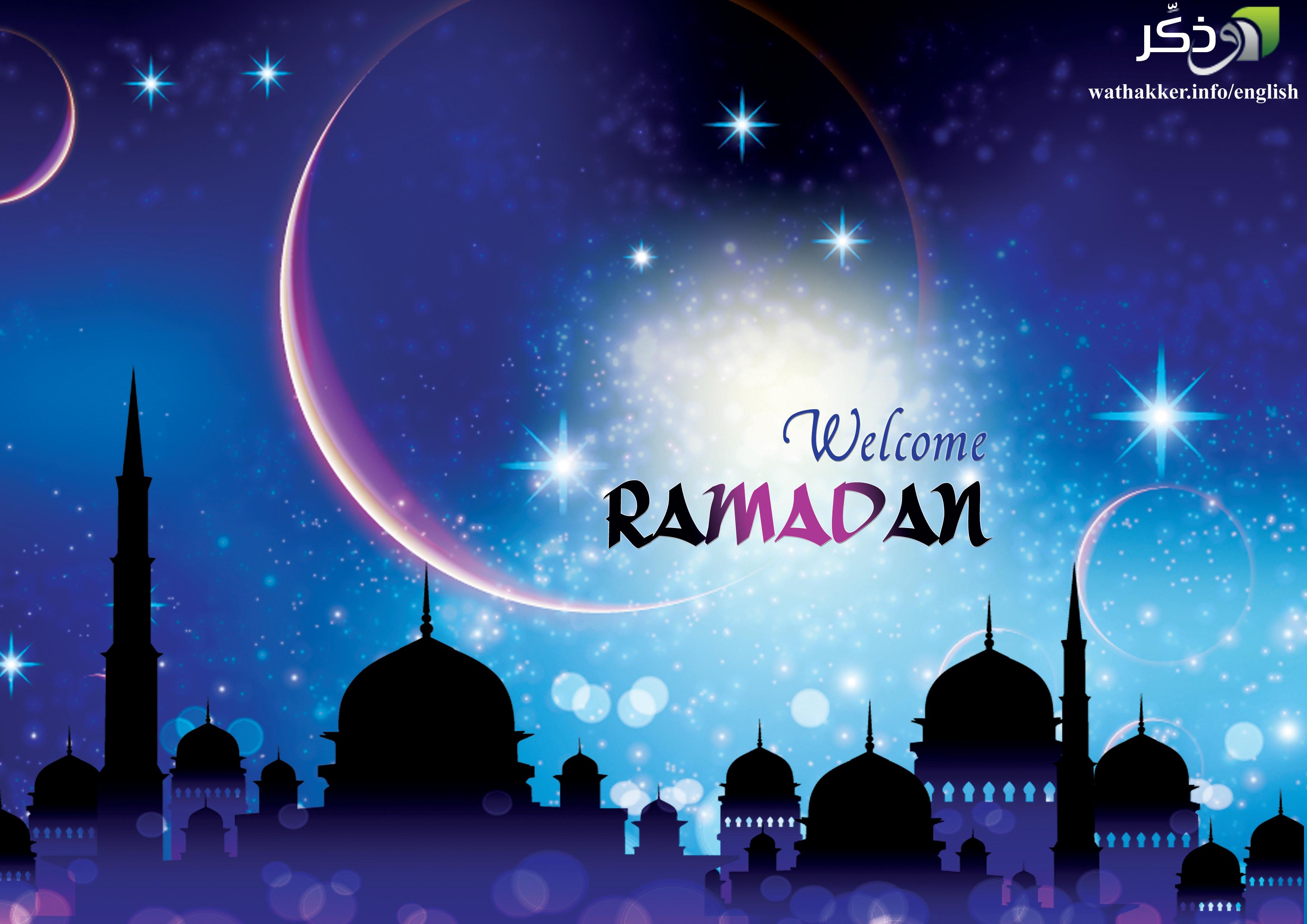


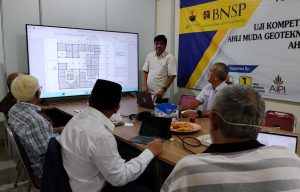

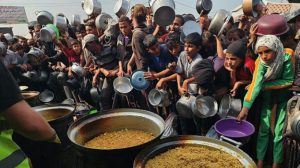


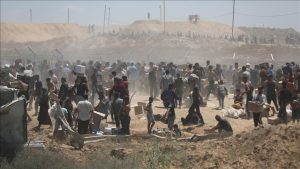

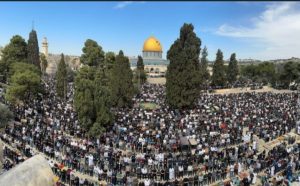
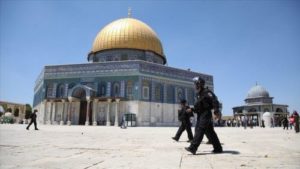

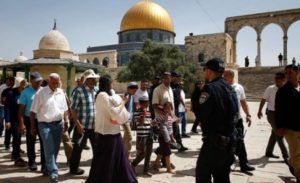

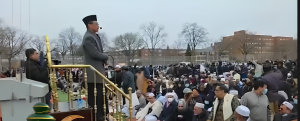















 Mina Indonesia
Mina Indonesia Mina Arabic
Mina Arabic